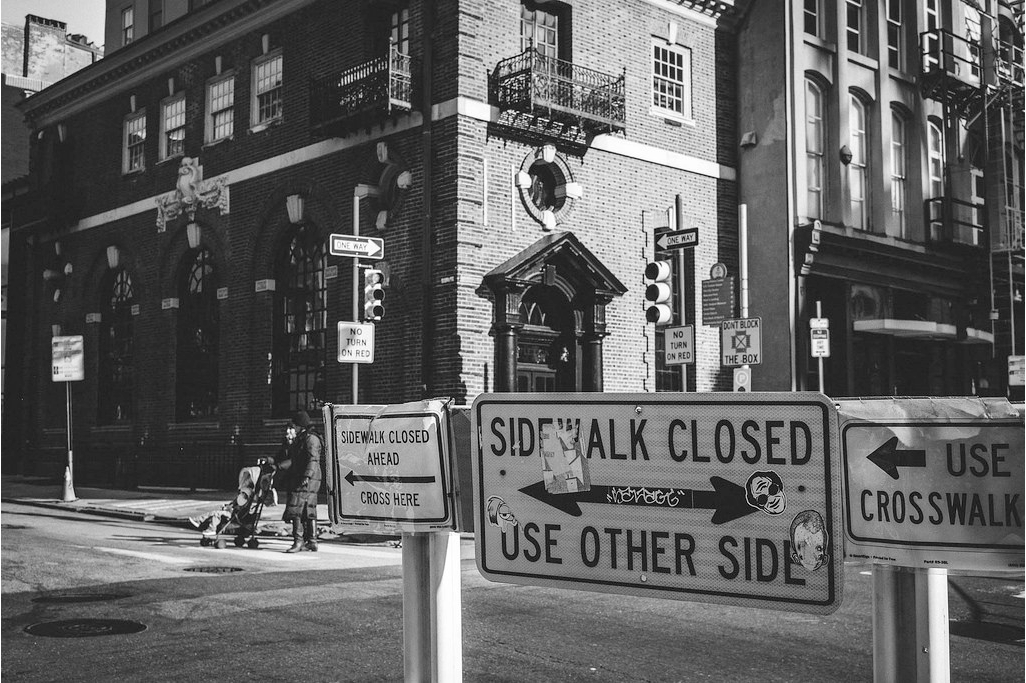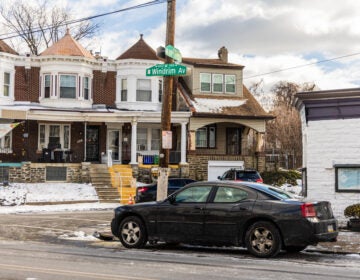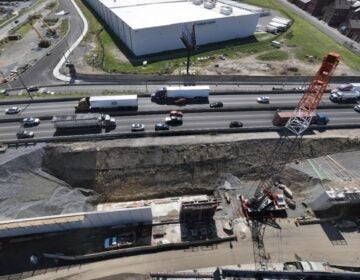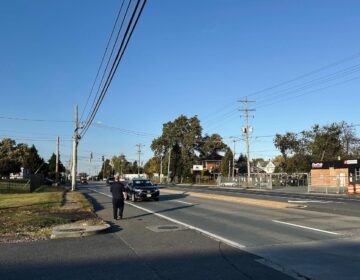Council advances bill aimed at unblocking sidewalks

On Friday, Philadelphia City Council’s streets committee advanced a bill to address a frustration for Philadelphians: sidewalks shut down by nearby construction.
Blocked sidewalks are one of those “good problems” for a city to have. A glut of construction blocking the public right of way signifies economic growth. Just as a starving man doesn’t worry about cholesterol, a shrinking city doesn’t worry about construction crews impeding pedestrian traffic. But given enough build up, clogged arteries can become deadly.
The bill, introduced by Councilwoman-at-Large Helen Gym and co-sponsored by Councilmembers Mark Squilla, Derek Green, Allan Domb, and Jannie Blackwell, encourages builders to consider providing a “protected walkway” at construction sites, instead of shutting down the sidewalk entirely, if a “covered walkway” is deemed “impracticable.”
Under current law, builders must obtain permits from the Streets Department to shut down the sidewalks and parts of the street’s roadway. If the closure will last more than a week, the builder must build a “covered walkway” — scaffolding that allows pedestrians to pass underneath with something above them to keep them safe from falling demolition debris or a dropped hammer — unless an independent engineer says it is “impracticable,” a term undefined by the Philadelphia Code. In that case, the sidewalk (and sometimes part of the roadway) can be closed during construction.
Currently, the fee to completely close a sidewalk in Center City or University City is $3-per-foot-per-week, which drops to $1.50 if a walkway is constructed in the parking lane.
When covered walkways are deemed impracticable, the bill would require builders to then consider a “protected walkway”, meaning an uncovered walkway that is still “bordered by barriers adequate to protect the safety of pedestrians.” In considering whether to require a protected walkway, the bill directs the Streets Department to consider whether it would “adequately protect public safety and not unduly impact traffic safety.”
The code’s walkway provisions cover both construction and demolition sites.
At Friday’s committee hearing, the bill received the backing of a wide range of interests. Representatives from Disabled in Action of Pennsylvania, the AARP, urbanist PAC 5th Square, and pedestrian advocacy group Feet First Philly all spoke in favor of the bill. Blocked sidewalks are especially difficult for residents with limited mobility.
Also speaking in support of the bill was the General Building Contractors Association (GBCA). “We believe that this piece of legislation is justified in its intention to further ensure the safety of pedestrians and traffic below as construction projects are completed in the sky,” said Maura Hesdon, a GBCA representative and general manager of Shoemaker Construction.
Cynics may question how effective a bill may be, given that it nominally seeks to impose greater costs upon builders, yet received the backing of an contractors association. While the current law and bill both require an “independent” engineer, those outside consultants get hired and paid by the contractors, meaning there is still an incentive to deliver a report that says what the builders want.
The idea of increasing fines for sidewalk closures, proposed by Mayor Jim Kenney when he was still in Council, have fallen by the wayside.
The bill should come up for a final vote next week.
WHYY is your source for fact-based, in-depth journalism and information. As a nonprofit organization, we rely on financial support from readers like you. Please give today.






